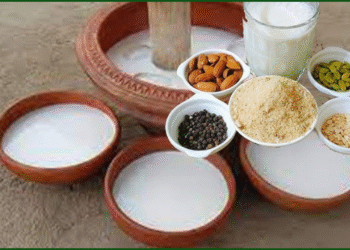In a significant diplomatic engagement, Iranian Foreign Minister Seyyed Abbas Araghchi visited Pakistan on Monday, meeting with President Asif Ali Zardari, Prime Minister Shehbaz Sharif, and Deputy Prime Minister and Foreign Minister Ishaq Dar. The visit underscores the deep-rooted ties between the two nations amid escalating regional tensions, particularly with India, following the recent Pahalgam incident.
Zardari Calls for Regional Unity and Peace
At the Presidency, President Zardari welcomed Araghchi, emphasizing the longstanding fraternal bond between Pakistan and Iran. He advocated for collaborative efforts to foster peace and economic prosperity in the region, particularly in light of recent developments. Zardari expressed concern over India’s aggressive stance, which he described as a threat to regional stability, and reaffirmed Pakistan’s commitment to resolving disputes through dialogue.
v He highlighted the potential for expanded trade and cooperation on regional issues, including the situation in Afghanistan. Both leaders condemned the ongoing violence in Gaza and the West Bank, calling for an end to Israeli human rights violations. Araghchi conveyed greetings from Iran’s Supreme Leader Ayatullah Sayyid Ali Khamenei and President Masoud Pezeshkian, underscoring Iran’s support for Pakistan’s position and urging de-escalation in the region.
Sharif Highlights Indus Waters Treaty as Non-Negotiable
In discussions with Prime Minister Shehbaz Sharif, the focus shifted to Pakistan’s concerns over India’s provocative actions, including attempts to undermine the Indus Waters Treaty. Sharif described any move to revoke the treaty as a “red line” for Pakistan, emphasizing its critical importance to the nation’s water security. He reiterated Pakistan’s rejection of India’s unsubstantiated claims linking Islamabad to the Pahalgam incident and called for an impartial international investigation to establish the truth.
Sharif expressed condolences for the recent tragedy in Bandar Abbas, Iran, and reaffirmed Pakistan’s commitment to strengthening ties with Tehran. He highlighted opportunities for collaboration in trade, energy, and border security, expressing optimism about the growing momentum in bilateral relations. Araghchi reciprocated, inviting Sharif to visit Iran later this year to further solidify the partnership.
Dar Rejects Allegations, Advocates for Dialogue
Meeting at the Ministry of Foreign Affairs, Deputy Prime Minister and Foreign Minister Ishaq Dar reiterated Pakistan’s stance that allegations regarding the Pahalgam incident were baseless. He accused India of deflecting attention from its actions in Kashmir and called for a transparent investigation. Dar emphasized Pakistan’s sacrifices in combating terrorism and urged the international community to recognize its efforts.
The discussions also explored avenues for enhanced cooperation in trade, energy, and regional connectivity. Both leaders agreed to maintain close coordination to promote stability and development in the region.
A Shared Vision for Peace and Prosperity
The visit reflects the enduring partnership between Pakistan and Iran, rooted in shared history and mutual interests. As both nations navigate complex regional challenges, their commitment to dialogue and collaboration signals a unified approach to fostering peace and prosperity. The Foreign Office described the talks as a testament to the strength of Pak-Iran relations and their joint resolve to address pressing regional issues.


















































